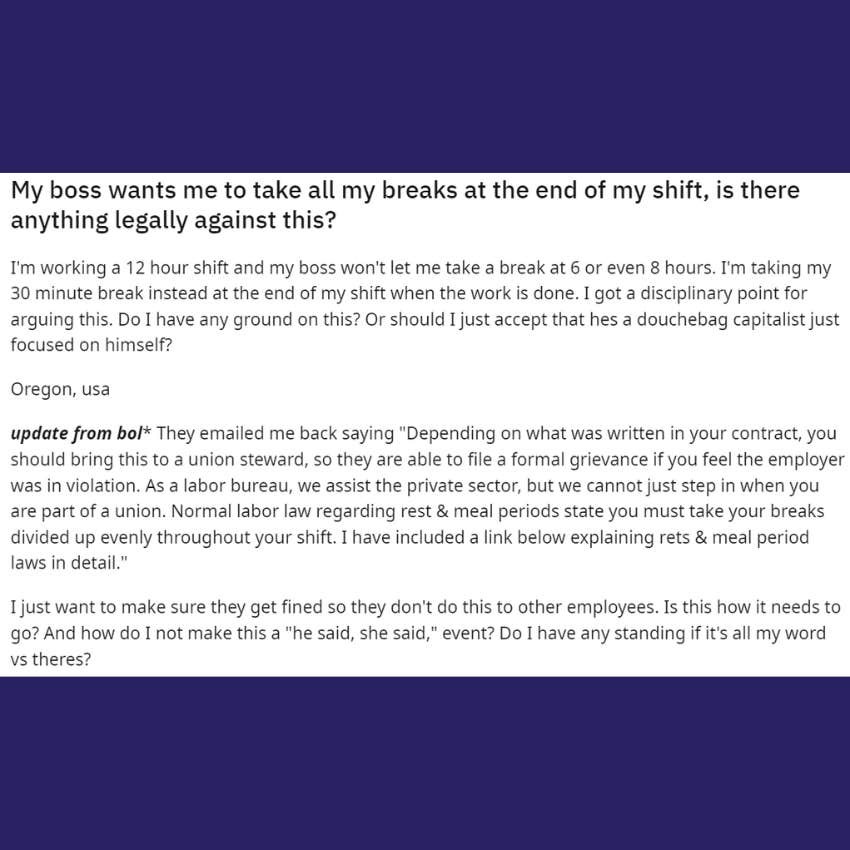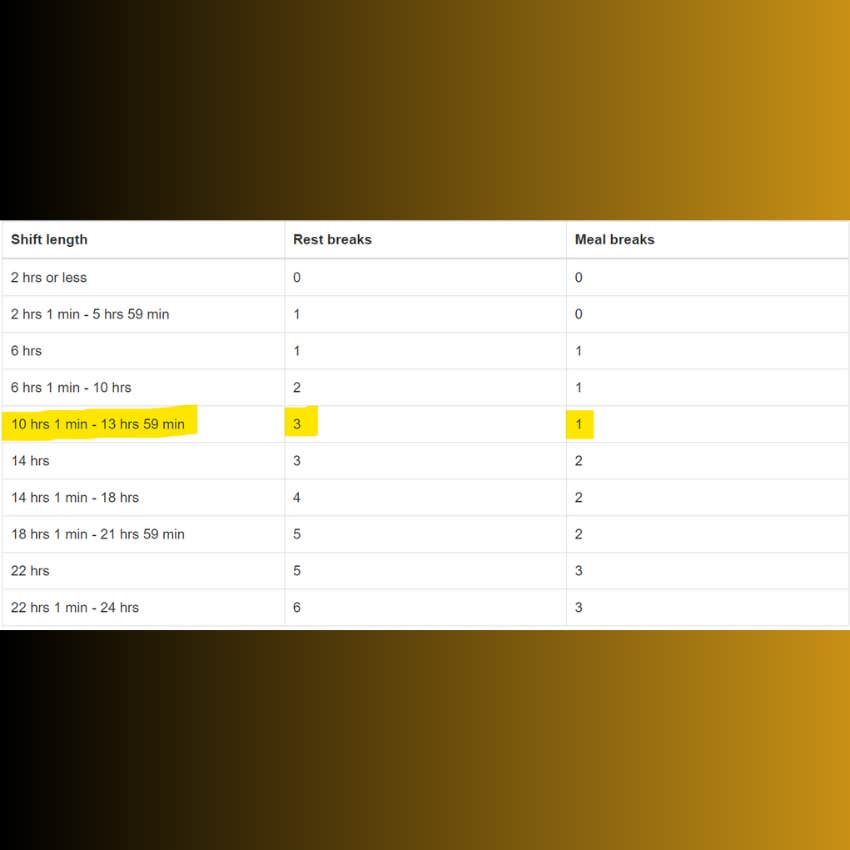Boss Makes Employee Working 12-Hour Days Take Their Breaks At The End Of Their Shift — ‘Should I Just Accept This?’
This is completely barbaric.
 Stokkete/Shutterstock
Stokkete/Shutterstock When it comes to the workplace, there are some clear rules and regulations put in place to protect both employers and employees. But there are times when those protections are ignored and those in charge seek to push their own agendas on employees, regardless of the impact.
That is precisely what happened to one worker whose boss set out unhealthy and outlandish expectations.
An employee shared that their employer forbid breaks despite long shift durations.
In the post uploaded to the r/antiwork subreddit, the employee based in Oregon shared, “I'm working a 12-hour shift and my boss won't let me take a break at 6 or even 8 hours.” They went on to say that the manager only allowed them to take a break at the end of their shift once all of the work had been completed.
The worker faced disciplinary actions when they challenged the requirement to take a break at the end of their shift.
“I got a disciplinary point for arguing this,” they said before asking if they had a leg to stand on in fighting against the unofficial policy. It's clear to the worker that their boss is selfish and has no interest in what is best for the work environment or their employees but is focused instead on the bottom line.
 Photo: Reddit
Photo: Reddit
One commenter said it best when they offered, “That’s not a break. That’s going home early.”
People urged the poster to go file a complaint with the Department of Labor.
Several commenters explained that according to state law, the employee was entitled to three paid 10-minute breaks during a 12-hour shift as well as an unpaid 30-minute lunch break — and they were correct. The Oregon Bureau of Labor & Industries provides specific guidance on how employees’ workdays should be structured.
During a 12-hour shift, employees are entitled to three paid breaks lasting at least ten minutes and one unpaid lunch break lasting at least 30 minutes. Employers can require they stay on the premises, but they must be relieved of all duties.
Failure to comply could result in fines and legal costs for companies.
 Photo: BOLI
Photo: BOLI
Meal and break rules vary by state and often depend on whether employees are in the private sector or work for a government entity. But under no circumstances is an employee expected to work 12 hours without taking a break.
The employee took commenters’ advice and made a complaint to human resources.
The response from HR indicated that the worker was part of a union. They advised, “Depending on what was written in your contract, you should bring this to a union steward, so they are able to file a formal grievance if you feel the employer was in violation.” HR also explained that because the employee was represented by a union, they could not step in to assist and that the worker must go through the proper protocol.
However, they did offer some guidance on how breaks should be taken — that they should be divided up evenly during a shift and provided a link to the associated laws. As for the employee, they were determined to hold their employer accountable and make sure other workers didn’t suffer the same treatment.
Unfortunately, as in many workplace interactions, there was no concrete evidence of the manager's demands.
As a reminder, the employer-employee relationship is not personal.
It’s strictly business. Any agreements should be made in writing and if they are not, you should follow up any private conversations with an email revisiting the discussion and expectations. That way, should a problem arise, there are no questions about the interaction.
NyRee Ausler is a writer and author from Seattle, Washington. She covers issues navigating the workplace using the experience garnered over two decades of working in Human Resources and Diversity, Equity, and Inclusion.
